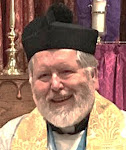Today we thank the Lord for St Lawrence of Brindisi, who is honoured as a Doctor of the Church.
He was born Caesar de Rossi at Brindisi, in the kingdom of Naples, Italy, on July 22, 1559 but took the name Lawrence when he became a Capuchin Franciscan at the age of 16.
While a deacon, Lawrence became well-known for his powerful preaching of the Word of God, and after his ordination to the priesthood startled the whole of northern Italy with his sermons.
In 1596, he became a Superior in his order, and five years later went to Germany with Benedict of Urbino. They founded several priories throughout Europe.
In 1602, Lawrence became the Master General of his order. He worked, preached and wrote to spread the Gospel. He also went on important peace missions to Munich and Madrid. The rulers of those places listened to him and his missions were successful. Eventually Lawrence was worn out by constant travell in difficult conditions and by the strain of his ministry. He became ill and died in 1619. But he lived and died for the Lord, and through his faithfulness many embraced the saving Gospel.
Here is the passage set for the Office of Readings today. Would that all preachers today had such confidence in the power of God's Word!
There is a spiritual life that we share with the angels of heaven and with the divine spirits, for like them we have been formed in the image and likeness of God. The bread that is necessary for living this life is the grace of the Holy Spirit and the love of God. But grace and love are nothing without faith, since without faith it is impossible to please God. And faith is not conceived unless the word of God is preached. Faith comes through hearing, and what is heard is the word of Christ. The preaching of the word of God, then, is necessary for the spiritual life, just as the planting of seed is necessary for bodily life.
Christ says: The sower went out to sow his seed. The sower goes out as a herald of justice. On some occasions we read that the herald was God, for example, when with a living voice from heaven he gave the law of justice to a whole people in the desert.
On other occasions, the herald was an angel of the Lord, as when he accused the people of transgressing the divine law at Bochim, in the place of weeping. At this all the sons of Israel, when they heard the angel’s address, became sorrowful in their hearts, lifted up their voices, and wept bitterly. Then again, Moses preached the law of the Lord to the whole people on the plains of Moab, as we read in Deuteronomy. Finally, Christ came as God and man to preach the word of the Lord, and for the same purpose he sent the apostles, just as he had sent the prophets before them.
Preaching therefore, is a duty that is apostolic, angelic, Christian, divine. The word of God is replete with manifold blessings, since it is, so to speak, a treasure of all goods. It is the source of faith, hope, charity, all virtues, all the gifts of the Holy Spirit, all the beatitudes of the Gospel, all good works, all the rewards of life, all the glory of paradise: Welcome the word that has taken root in you, with its power to save you.
For the word of God is a light to the mind and a fire to the will. It enables man to know God and to love him. And for the interior man who lives by the Spirit of God, through grace, it is bread and water, but a bread sweeter than honey and the honeycomb, a water better than wine and milk. For the soul it is a spiritual treasure of merits yielding an abundance of gold and precious stones. Against the hardness of a heart that persists in wrongdoing, it acts as a hammer. Against the world, the flesh and the devil it serves as a sword that destroys all sin.
For the word of God is a light to the mind and a fire to the will. It enables man to know God and to love him. And for the interior man who lives by the Spirit of God, through grace, it is bread and water, but a bread sweeter than honey and the honeycomb, a water better than wine and milk. For the soul it is a spiritual treasure of merits yielding an abundance of gold and precious stones. Against the hardness of a heart that persists in wrongdoing, it acts as a hammer. Against the world, the flesh and the devil it serves as a sword that destroys all sin.


















0 comments:
Post a Comment